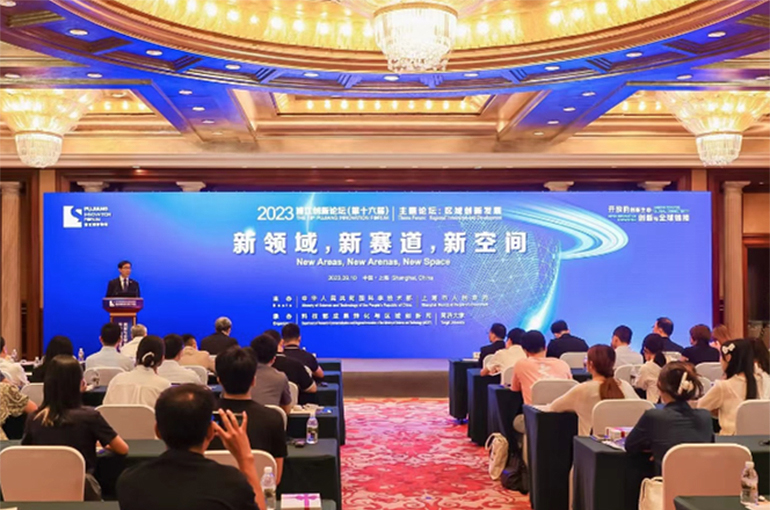 China’s Global Tech Innovations Hubs Are Driving Development Through Innovation, Experts Say
China’s Global Tech Innovations Hubs Are Driving Development Through Innovation, Experts Say(Yicai) Sept. 11 -- China’s three international science and technology innovation centers have a major role to play in keeping industries at the forefront of development, experts said at the ongoing Pujiang Innovation Forum in Shanghai.
“The Ministry of Science and Technology is strengthening the layout of the three international innovation centers in Beijing, Shanghai and the Guangdong-Hong Kong-Macao Greater Bay Area and promoting their leading role,” Liang Yingda, director of the Department of Strategy and Planning of the Ministry of Science and Technology, said at the Regional Innovation and Development subforum yesterday.
Shanghai was the country’s first global science and technology innovation center, said Wu Zhiqiang, professor at Tongji University. As long as there is modern industry, there must be innovation. Shanghai will drive innovation in the economic hub of the Yangtze River Delta, but more research institutions and test platforms are needed.
“I believe that in the next 10 to 15 years, the government and non-governmental organizations will set up scientific research institutions in the Yangtze River Delta,” Wu said.
The Jingjinji National Center of Technology Innovation has formed a number of high-precision projects in Beijing, said Director Wang Duoxiang. “The Beijing center is cooperating with top universities at home and abroad, accelerating the industrialization of major research results and setting up a national innovation high ground to carry out disruptive technological innovation,” he added.
The Greater Bay Area National Center of Technology Innovation, which comprises Shenzhen, Guangzhou and Hong Kong, is the second-best science and technology cluster in the world, according to the World Intellectual Property Organization’s Global Innovation Index.
The Hong Kong government plans to improve the linked development of the up, mid- and downstream of the technology innovation ecosystem through the Greater Bay Area National Center of Technology Innovation, said Sun Dong, Secretary for Innovation, Technology and Industry of Hong Kong.
“This year we will launch a CNY10 billion (USD1.4 billion) industry-university-research ‘1+ Plan’ that will bring together hundreds of start-up teams in Hong Kong and leverage science and technology innovation cooperation zones in Hetao and the Shenzhen-Hong Kong region to create a world-class international industry-university-research platform in China,” Sun said.
The Hong Kong government will also promote the digital economy and international data ports, as well as build a world-class innovation and talent exchange platform to expand global exchanges and cooperation, Sun added.
Editor: Kim Taylor